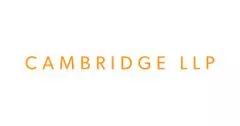- within Litigation and Mediation & Arbitration topic(s)
- in United Kingdom
- with readers working within the Law Firm industries
- within Litigation and Mediation & Arbitration topic(s)
Mareva orders are an exception to the rule that you cannot normally assure yourself of enforcement before you have a judgment. They stop the defendant and others from dissipating assets before judgment. 1
Ontario Mareva injunctions can be issued without notice in increments up to 10 days, and thereafter extended on the application, though they are not a stand-alone cause of action.
1) Legal Test for a Mareva Injunction:
There are four legal components: the test for a Mareva injunction; the basic requirements of an interlocutory injunction; the prerequisites to obtaining ex parte relief under the common law (including the duty to disclose material facts); and equitable principles which may bar relief.
The test for a Mareva injunction requires three elements
- A strong prima facie case
- That the defendant has assets in the jurisdiction; and
- That there is a serious risk that the defendant will remove property or dissipate assets before the judgment, with the intention of avoiding judgment
Under the test for interlocutory injunctions established in RJR-MacDonald Inc. v. Canada (Attorney General) [1995] 3 SCR 199, three further criteria must be satisfied:
- There is a serious issue to be tried
- The applicant will suffer irreparable harm if the injunction is not granted; and
- The balance of convenience––or relative prejudice—suggests that the Marevainjunction will cause less harm to the defendant than the moving party.
2) Ex-parte requirements: the duty to disclose all material facts
In Chitel et al. v. Rothbart et al. (1983), 1982 CanLII 1956 (ON CA), the Court articulated the duty to disclose as one of five common law prerequisites for Mareva and other ex parte injunctions imported from UK case law:
- The plaintiff should make full and frank disclosure of all matters in his knowledge which are material for the judge to know;
- The plaintiff should give particulars of his claim against the defendant, stating the ground of his claim and the amount thereof, and fairly state the points made against it by the defendant;
- The plaintiff should give some grounds for believing that the defendants have assets here;
- The plaintiff should give some grounds for believing that there is a risk of the assets being removed before the judgment or award is satisfied; and
- The plaintiff must give an undertaking as to damages.
"Material fact" includes all those facts of which the judge hearing the motion may need to be aware of coming to his or her decision, where non-disclosure may affect the outcome. This includes considering the merits of the main claim itself, and documents in the moving party's power to produce which may be favourable to the other party's position. Failure to produce such documents may lead the Court to draw an adverse inference.
The disclosure standard is also stated in rule 39.01(6) of the Rules of Civil Procedure.
Such stringent requirements are necessary on ex parte motions because the Judge does not have the benefit of adversarial argument and the resulting orders may be prejudicial to the defendant.
3) Consequences of a Failure to Disclose All Material Facts:
Rule 39.01(6) states that a failure to make full and frank (or "fair") disclosure is enough to set aside a Mareva order or deny it in the first place. Case law repeatedly demonstrates this pitfall and orders are often reversed when counsel is less than fair to the other side.
Rarely, however, the magnitude of the material facts in evidence to support a Mareva order will make up for slip-ups on this point, and judge may decline to set one aside on the view that it was not, in the end, "improperly obtained."2
A defendant can also bring a motion to dismiss the injunction, upon which the plaintiff must choose to defend a motion to dismiss by either upholding the Mareva issuance without the benefit of advancing any new evidence or in the alternative by solely defending against new evidence advanced by the defendant. Defendants can also use this opportunity to challenge the Mareva on jurisdictional grounds.
Where a Mareva is dismissed for failure to disclose or any other reason, each party has been ordered to pay its own costs. The rationale for avoiding the ordinary costs rules is that it is extraordinary relief amounting to execution before judgment.
4) Factors Considered in Varying a Mareva Injunction
Respondents often need to seek variance of a Mareva order to pay expenses or legal fees.
When seeking to vary a Mareva order, Ontario courts consider three factors, from Canadian Imperial Bank of Commerce v. Credit Valley Institute of Business & Technology 2003 CanLII 12916 (ON SC):
- Has the defendant established that he has no other assets other than those frozen by the injunction?
- If so, have the defendants shown that there are assets caught by the injunction that is from a source other than the plaintiff, and therefore not subject to a proprietary claim by him?
- Has the defendant exhausted non-proprietary assets before looking to proprietary assets to pay expenses?
- If the defendant has met the above previous three tests and requires living expenses and legal funds, the court must assess the balance of convenience
5) Additional concerns for lawyers of clients under a Mareva injunction:
A lawyer may be held in civil contempt for releasing client funds from a Mareva-bound account. In these situations, it is no defense that lawyer lacked bad intention, or had conflicting fiduciary obligations to the client.3 Importantly, it is also professional misconduct. When the Law Society first decided this issue in Law Society of Upper Canada v. Carey, 2017 ONLSTH 25, they declined to sanction a lawyer due to the uncertain state of the law at the time. With the law now clear, lawyers can expect professional discipline.
Footnotes
1 Buduchnist Credit Union Limited v. 2321197 Ontario Inc., 2024 ONCA 57 at para 45.
2 Two-Tyme Recycling Inc. v. Woods, 2009 CanLII 64803 (ON SC), at para 20.
3 Carey v. Laiken, 2015 SCC 17
The content of this article is intended to provide a general guide to the subject matter. Specialist advice should be sought about your specific circumstances.


